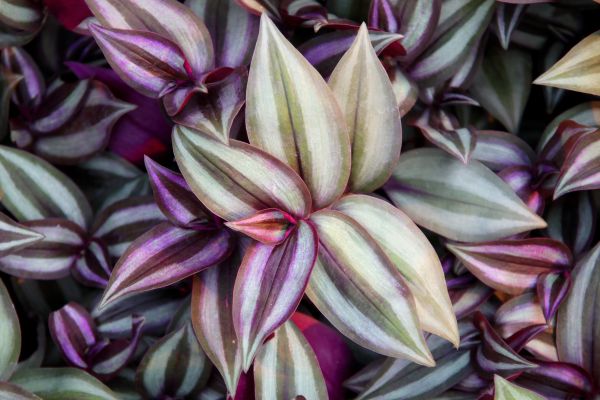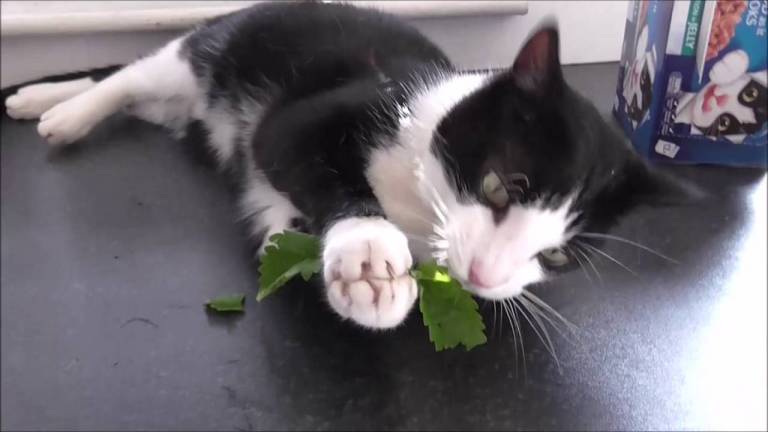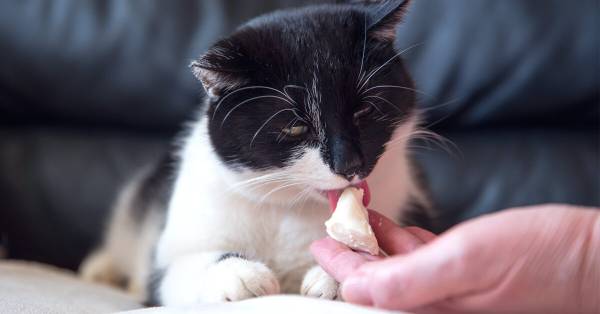Have you ever noticed that your cat seems drawn to the mint? There’s a reason for that! The smell is somewhat similar to catnip, which is also in the mint family. However, regular mint doesn’t make cats act silly or high. Instead, it can make them very sick.
Connect with a verified veterinarian in minutes. Licensed vets are available 24/7 to answer your questions. No need to worry about your furry family member.
What is Mint?
Mint is a plant that belongs to the Lamiaceae family, which includes 20 species (including peppermint and spearmint). This plant is an herb that has many uses. It’s popular in all kinds of recipes, used to flavor toothpaste, gum, candy, and more. The essential oils derived from mint are also used for medicinal purposes such as migraines, digestive problems, and more.
Mint plants contain many antioxidants and have been found to help those who have IBS and other conditions. The plants also have anti-inflammatory properties that help a wide range of health issues.
While mint is safe for use by humans, it is also safe for cats?
Mint & Cats
According to the ASPCA, mint is toxic to cats (and dogs) in large amounts. This does not include catnip, even though it’s also in the mint family. However, pennyroyal mint is one of the most dangerous forms of mints for cats. This plant can cause liver failure, skin irritation, and more.
So, if you have mint plants in your garden that the cat seems to like, it’s a good idea to somehow enclose the mint to keep the cat out. And if you use mint in the kitchen, or mint essential oils in your home, be sure to keep these out of reach of your cat.

Review symptoms, medications & behavior to keep your pets healthy with a Vet Online in just minutes.
Ask a Vet Live NowSymptoms of Mint Poisoning in Cats
You may notice these symptoms if your cat has eaten mint:
- Nausea
- Vomiting
- Diarrhea
- Weakness
If you know or suspect that your cat has ingested any type of mint, then call the doctor right away. While this may not be a life-threatening emergency, your cat’s health is at stake. Mint toxicity needs to be treated as soon as possible to ensure a full recovery.
Treatment of Mint Toxicity in Cats
At the vets, they will perform a physical exam of your cat, and they will run lab work, too. After diagnosis, treatment will depend on your cat’s symptoms and their severity.
For instance, it may be necessary to remove the mint from your cat’s stomach. In this case, the vet may induce vomiting and/or use gastric lavage.
The prognosis is excellent for cats that receive prompt medical care for more severe symptoms.
As you can see, mint can be extremely dangerous for cats, especially pennyroyal mint. For this reason, keep your cat from gaining access to mint and mint plants. You’ll both be much happier in the long run!
Connect with a verified veterinarian in minutes. Licensed vets are available 24/7 to answer your questions. No need to worry about your furry family member.

Tom
Tom has always loved to write since he was little - he wanted to be either a writer or a veterinary doctor, but he ended up being a professional writer while most of his works are based on animals. He was born in San Francisco but later moved to Texas to continue his job as a writer. He graduated from the University of San Francisco where he studied biotechnology. He is happily married and a soon to be father!
Review symptoms, medications & behavior to keep your pets healthy with a Vet Online in just minutes.
Ask a Vet Live Now



